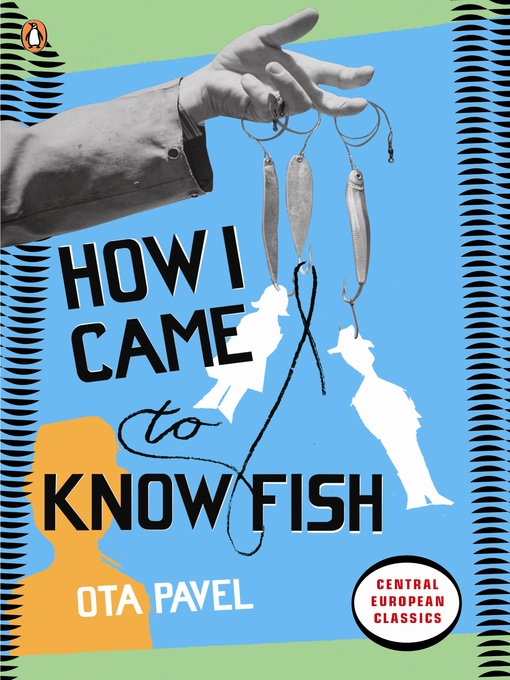
How I Came To Know Fish by Ota Pavel, Penguin Translated Texts
By Chloe Evans.
When I was a little girl, I was allowed to go with my Dad fishing the trout streams around Llanddewi Brefi, a blonde dot trailing after him with a blue and white rod. I fell in the water so often I was eventually banned, health and safety were never invoked, but scaring the brownies away was a cardinal sin. I relived the unexpected cold of that water, and sighed again over my Pa’s obsession as I read How I Came to Know Fish, Ota Pavel’s memoir of pre-war Czechosolovakia. The book reads as a tribute to his father and a childhood spent learning to see the beauty of his homeland. But this is also a celebration of the abundant carp they fished out on their expeditions together and the freedom from worry and hunger that gave them.
The father we meet here is a little bit strange, but also wonderfully familiar to anyone who has known, loved and been exasperated by a fisherman. He sends his tiny son into dangerously high floodwaters after eel, having boasted about his expected catch and too proud to ditch a complicated plan long in the preparation. Although he is scared for his boy, this is not enough to keep him on dry land. The night before he is to be transported to a concentration camp, he is unable to sleep thinking of the fish suffocating under thick ice in his carp pond. Man and boy spend a freezing night releasing them; first lighting a fire on the ice and then bringing them home in heavy sacks. Simultaneously this is an act of love for the fish, and an act of defiance – two fingers to the tyranny of the invading force that had appropriated them. (Although the carp eventually end up doing their bit for Czech independence in a more tangible way when they are distributed into various local cooking pots). When his brothers are sent after their father to concentration camps, the kindness of strangers in a period of near starvation is heartbreaking.
A great part of the enjoyment of the writing is that although we know the child’s affection for his father and Uncle Prosek, the ferryman who taught him to fish, there is also an adult’s awareness of the slightly comical self-importance of these men. Bathos comes to the fore in a long story describing his father’s infatuation with the brassy wife of his boss, and the eventual rejection of this woman as a subject for a painting by his friend Vatislav Nechleba, a sort of early Czech Lucian Freud. In the closing passages before the epilogue, the gently confused old age of his father who fishes sleepily from a boat, unable to see where he has cast his bait, is described with great tenderness. Like any book in translation it would be a great omission to fail to mention that the reason these sentiments flow as clearly from the page as the rivers of the Krivlokat castle region, is thanks to the work of Jindriska Badal and Robert McDowell who translated it from the Czech.
We are left with an impression of nostalgia, but also hopefulness despite the terrible events of the war. This is a great exposition on freedom, celebrated with gorgeous descriptions of pastoral landscapes, as beautiful and lush as any blue remembered hills. Temporally confused in parts, the postmodern arrangement of pieces points up the bewildering times. And in the epilogue detailing the psychiatric meltdown of his early adult years, despite being blunted with psychotropic medication Ota Pavel describes feeling protected from suicide by his memories of and longing for the outdoor life of his childhood. No surprise then that when writing his memoir he must have found time as easily fluid as these lyrically remembered rivers.